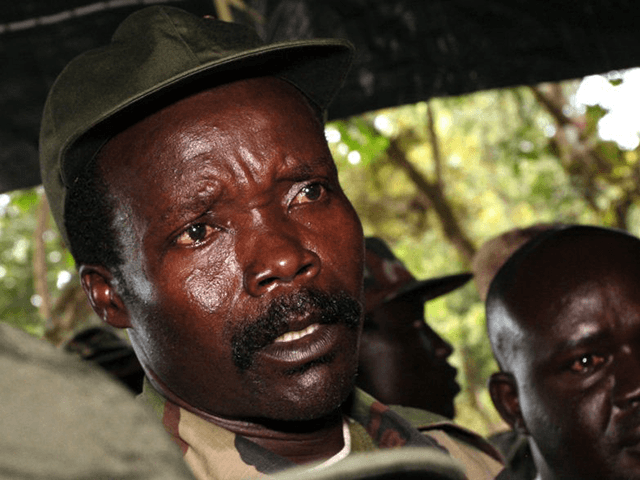The U.S. State Department recently offered a reward of up to $5 million for information that leads to the arrest of Joseph Kony, a Ugandan wanted by the International Criminal Court (ICC) for alleged crimes of war and crimes of humanity, Uganda’s Nile Post News reported Monday.
The online news outlet cited a statement posted by the official Twitter account of the U.S. State Department’s War Crimes Rewards Program on February 12. The statement read, “Joseph Kony has been wanted for more than 15 years. You can help bring him to justice and get paid up to $5 million. 100% confidentiality.”
Kony is a fugitive Ugandan warlord who founded an anti-government militia in Uganda known as the Lord’s Resistance Army (LRA) in the 1980s. Uganda’s military claims to have succeeded in forcing the LRA out of the country by 2005, with most of the militia’s rebels scattering across central Africa.
“[T]he LRA has been operating in the Democratic Republic of the Congo (DRC), CAR, South Sudan and reportedly Sudan,” the United Nations (U.N.) reported in March 2016.
Washington has attempted on several occasions to support Uganda in its effort to combat the now largely defunct LRA and locate Kony, who remains at large. The U.S. State Department under the administration of former U.S. President Barack Obama advertised its standard cash reward — up to $5 million — for information leading to the arrest of Kony in April 2013.
“Other than Kony, the rewards apply to his lieutenants, Okot Odhiambo and Dominic Ongwen, as well as the leader of the Democratic Forces for the Liberation of Rwanda, Sylvestre Mudacumura,” USA Today noted of the U.S. State Department bounty at the time.
Current U.S. President Joe Biden served as vice president under Obama for two terms from 2009 to 2017.
The militaries of Uganda and the U.S. said they ended their often coordinated hunt for Kony and his associates in April 2017.
“Kony is subject to an arrest warrant issued by the International Criminal Court,” the U.N. noted in March 2016. The U.N. detailed the numerous charges against Kony, writing:
The ICC has charged him with twelve counts of crimes against humanity including murder, enslavement, sexual enslavement, rape, inhumane acts of inflicting serious bodily injury and suffering, and twenty-one counts of war crimes including murder, cruel treatment of civilians, intentionally directing an attack against a civilian population, pillaging, inducing rape, and enlisting, through abduction, of children under the age of 15 years.
The U.N. estimated in 2017 that Kony and the LRA killed roughly 100,000 people and displaced two million during a guerilla warfare-based anti-government campaign from the 1980s to the early 2000s.
“From 1987 to 2006, the armed group abducted more than 20,000 children to use as soldiers, servants or sex slaves, according to Unicef,” the New York Times reported in April 2017.
The campaign to arrest Kony was most prominently publicized in the United States by the non-profit Invisible Children, which published a video online in March 2012 campaigning for more U.S. involvement in Uganda to help support a goal of arresting Kony by the end of 2012. Known as “Kony 2012,” the short film garnered over 100 million views within its first week on the internet. The 30-minute video seemingly generated instant surface awareness about Kony’s history of recruiting child soldiers among Westerners within weeks.
The video’s viral success may have proved too much for Invisible Children’s founder, Jason Russell, who reportedly suffered a psychotic break on March 15, 2012, less than 14 days after the release of “Kony 2012.” Reports at the time indicated that Invisible Child was not sufficiently staffed and prepared for the level of popularity the campaign would achieve, largely through word of mouth shared by celebrities. Police in San Diego, California, arrested Russell — who helped create and narrated the film — on March 15, 2012, “for allegedly masturbating in public and vandalizing cars, with several people reporting a man running along a street in his underwear and screaming,” according to the Hollywood Reporter.
“Kony 2012” and its associated charity, Invisible Children, attracted intense scrutiny in the wake of Russell’s meltdown and detention. Invisible Children announced plans in 2014 to fully close by 2015 due to a lack of funds.
“Invisible Children exhausted virtually all of the money it raised from the Kony 2012 campaign in 18 to 24 months,” NPR reported in December 2014.
The charity survived post-2015 through major financial restructuring, according to its website.

COMMENTS
Please let us know if you're having issues with commenting.